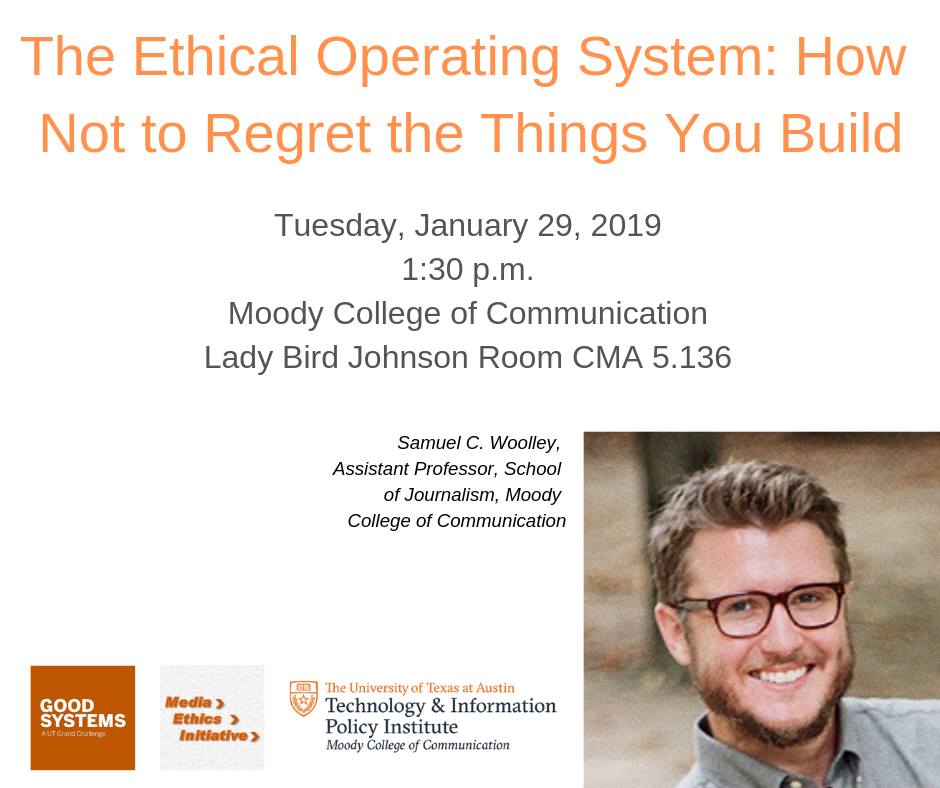
- This event has passed.
The Ethical Operating System

Dr. Samuel C. Woolley (The University of Texas at Austin) // January 28th, 2019 // 1:30pm-3:00pm // Jesse H. Jones Communication Center (CMA) 5.136
Join the Technology & Information Policy Institute and the Media Ethics Initiative as they host Samuel C. Woolley, Assistant Professor in the Journalism School at the Moody College of Communication. Professor Woolley will present his talk, The Ethical Operating System: How Not to Regret the Things You Build
The current wave of computational propaganda has taken the world by surprise. Technology firms, policymakers, journalists and the general public are scrambling to respond to the societal threats posed by disinformation and politically motivated trolling. This talk outlines one method for responding to these issues. It describes and presents the Ethical Operating System (ethicalOS.org), a toolkit for anticipating future uses of technology. Jane McGonigal and Samuel Woolley, with support from Omidyar Network, constructed this guide to help a wide variety of groups think about how to design technology with democracy and human rights in mind. The toolkit has been used by major companies in Silicon Valley, by legislators at the state and federal level and by students in Stanford’s design school and intro to computer science courses. It’s time, however, to put into the hands of the U.S. public so that they can help in the fight against disinformation and manipulative technology.
Samuel C. Woolley will join the School of Journalism at the University of Texas at Austin as an assistant professor in Fall 2019. He has affiliations as a research associate at the Oxford Internet Institute, University of Oxford, as a visiting scholar at the Center for Information Technology Research in the Interest of Society (CITRIS) at the University of California at Berkeley, and as a research affiliate at the Project for Democracy and the Internet at Stanford University.
The event is free and open to the public.
Co-sponsored by the Technology & Information Policy Institute,
Good Systems, and the Media Ethics Initiative
Powered by the Center for Media Engagement. Quizzes and users are not monitored or endorsed by the Center for Media Engagement.

